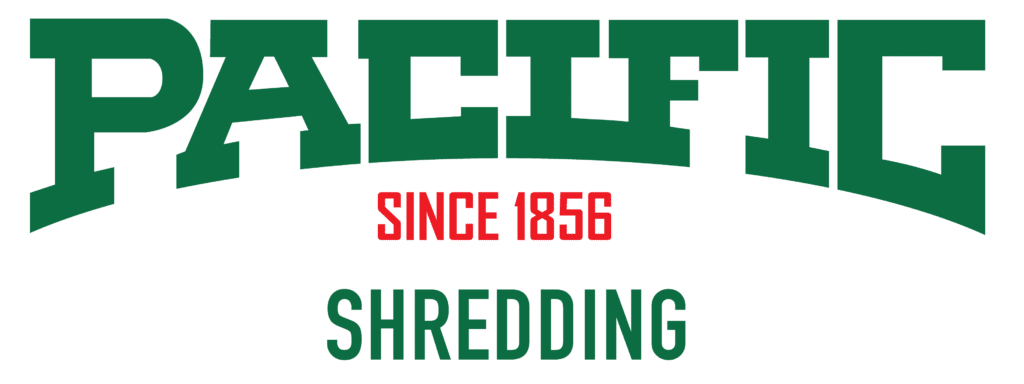Destruction: It’s Not Just for Paper
 Paper Facts
Paper Facts
- Did you know that, in the 1988 case of California vs. Greenwood, California’s Supreme Court declared that trash is public property if it’s on the curb? To the North of us, though, Oregon’s Supreme Court said that trash is private property if it is in a covered opaque bin. No one, including the garbage collectors, have the right to the contents without a warrant.
- Did you know that, in 1935, Adolf Ehinger created the first machine-run shredder to dispose of his printed anti-Nazi materials? The idea came from a hand-cranked pasta maker.
- Did you know that, in 1979, the US Embassy in Tehran shredded documents before the Iranian National Guard stormed the building? The Tehran regime then employed skilled carpet weavers with magnifying glasses to reconstruct some of the documents. After the Iran Hostage Crisis, the US Embassy started using crosscut shredding machines that could shred a single sheet of paper into 10,000 pieces.
- Did you know that paper isn’t the only thing around your office that contains private information, and that many other items should be shredded before discarding, too?
Hard Drives and Other Electronic Storage Media
If you have stored information on hard drives, SSD drives, USB drives, CDs/DVDs, microfilm, etc., ask yourself what you have been doing with these when they need discarding. Common answers are:
- Storing Them. If those drives contain any information that has passed its retention date, your business is no longer compliant with data privacy laws. When drives are sitting idle in storage, they can easily be stolen or lost, but the information on them will still be your responsibility in the eyes of the law.
- Erasing Them. Deleting files from hard drives and other electronic storage media seems like the best answer. The problem is that when you hid “delete,” that information isn’t actually deleted. The directory that tells the computer where to find your files is deleted, but the files themselves still remain scattered all over the drive. Thieves know how to retrieve this information, so the only way to be sure that information cannot be retrieved is to destroy the drives.
- Throwing Them in the Trash. As we mentioned above, anything that ends up in the trash in California is public property, plus, all the toxic materials and precious recyclable materials will be taken to the landfill. No one wants that.
- Recycling Them. Recycling seems like the answer, right? While it’s true that your data won’t survive disassembly, crushing, and recycling, what happens to it until then? Well, your media will end up in a warehouse somewhere, accessible to the truck drivers and anyone who has access to the warehouse, including the recycling workers. And while most are honest, are you willing to take that chance?
Have your hard drives and media shredded the same way you have your paper shredded: professionally. Have a NAID AAA Certified, local hard drive and media shredding service pulverize your electronic storage media so it’s impossible for anyone to retrieve confidential information from them.
Pacific Shredding provides NAID AAA Certified off-site and on-site hard drive and media shredding to businesses and residents throughout California’s Central Valley. We also recycle the shredded materials so you don’t have to worry about a thing. For more information, give our friendly shredding experts a call at 800-685-9034 or complete the form on this page. We look forward to hearing from you!

 Paper Facts
Paper Facts